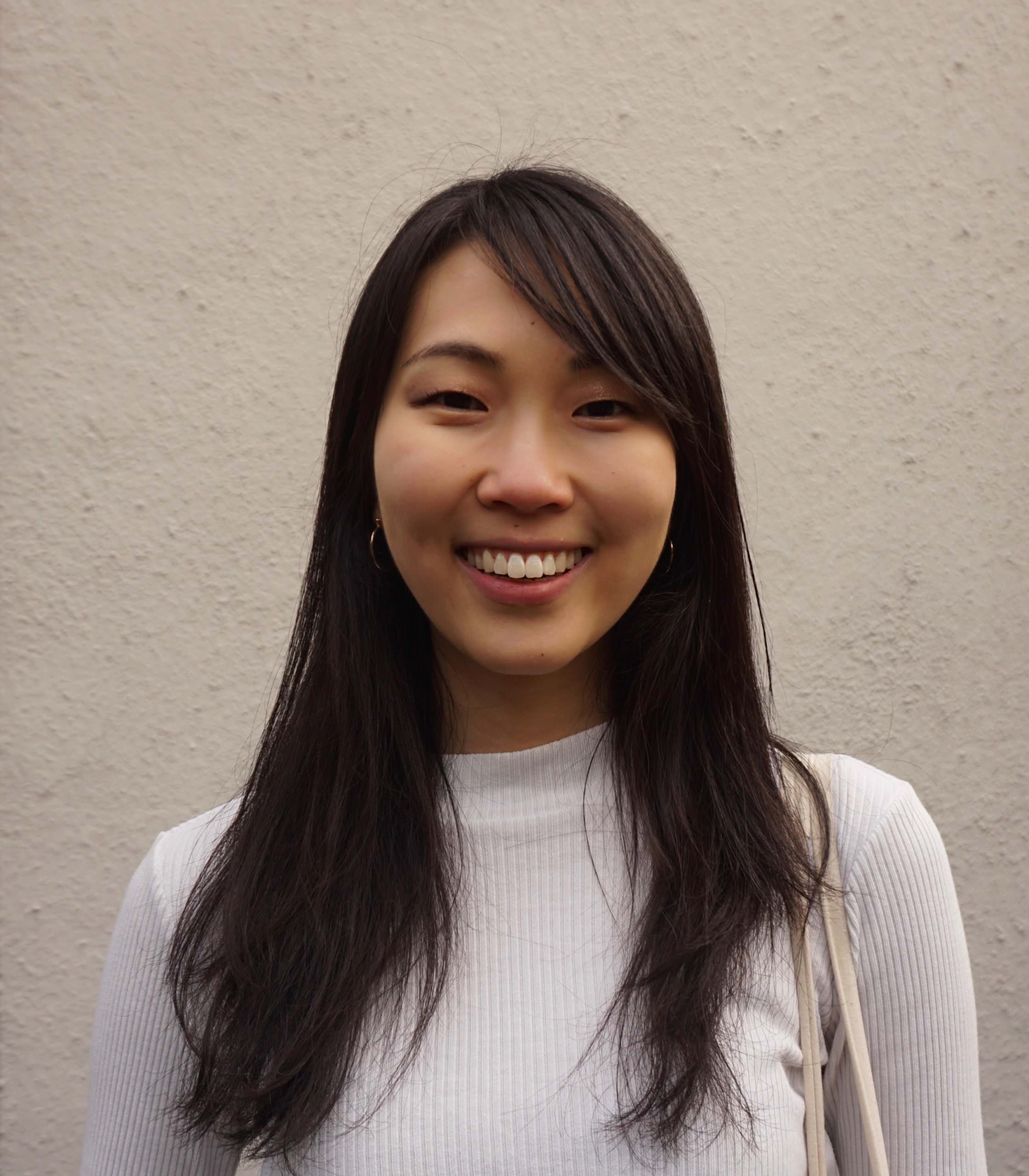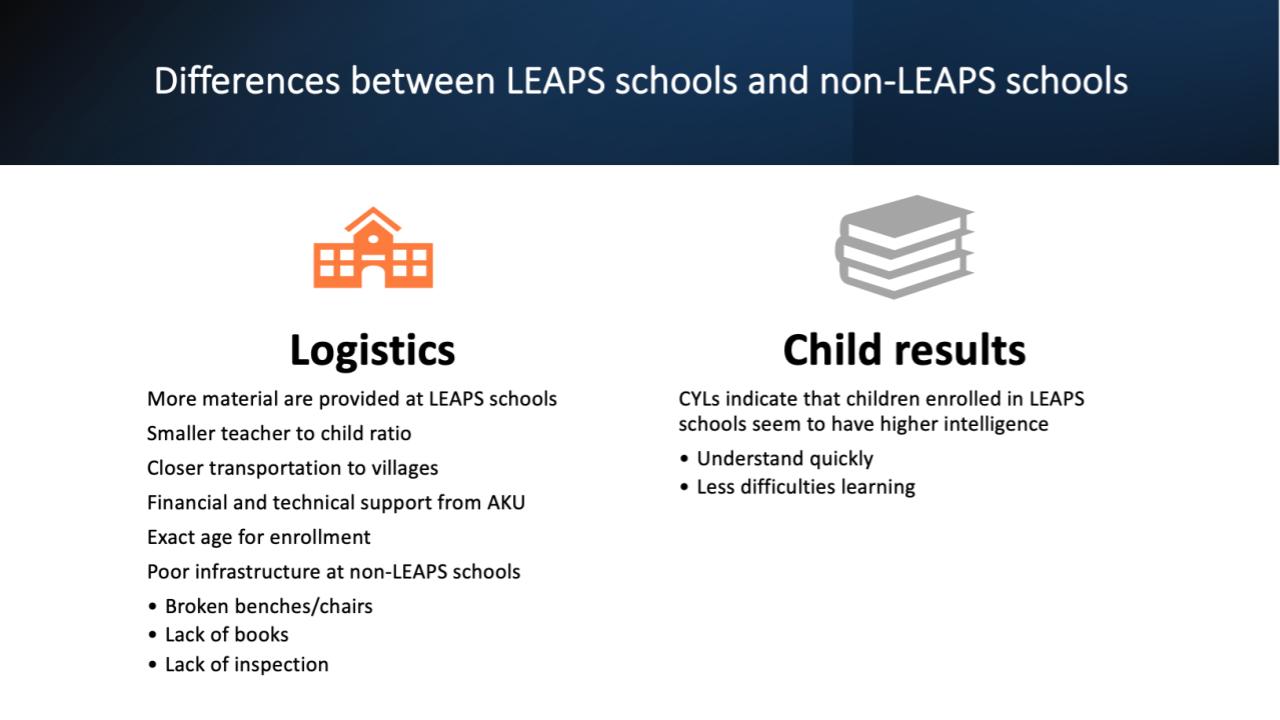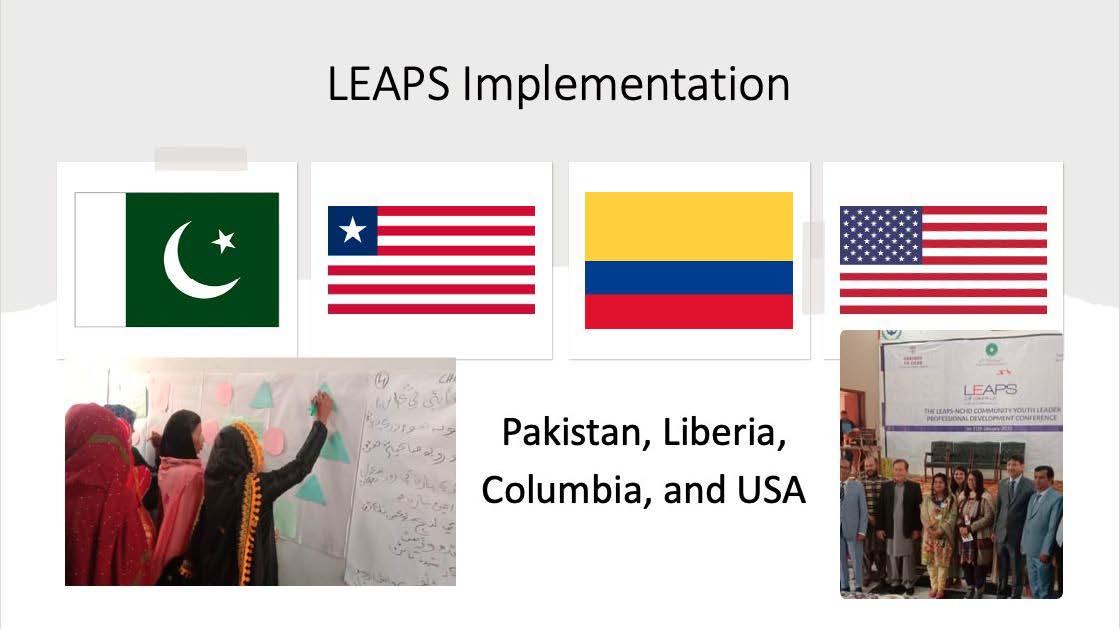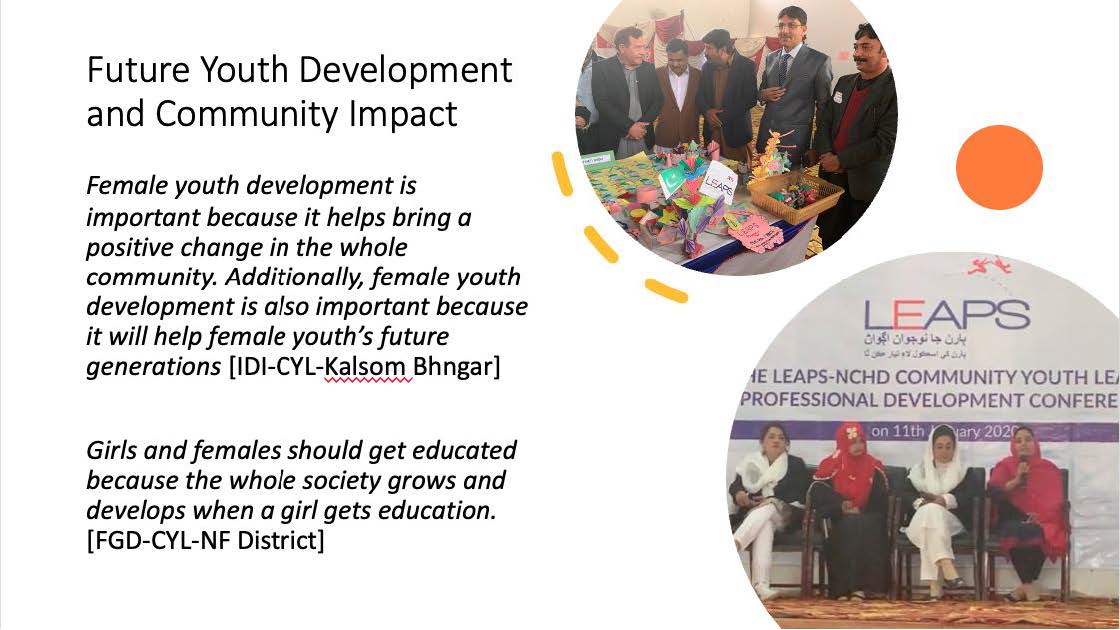Han Choi ’22, a Master’s student in the Department of Global Health & Population at the Harvard Chan School of Public Health, received a Mittal Institute student grant to spend her summer interning with LEAPS, a program that trains female youth to deliver early childhood care and education in rural Pakistan. Focusing on community development, she aimed to empower youth leaders by giving them a voice through the coordination of creative platforms, like webinars. With LEAPS, she worked to expand on local perspectives and recent data through qualitative analyses that are action-driven, to build advocacy on national/global platforms for South Asian youth. What follows is a summary of her project, in her own words.

Han Choi, Master’s student from the Harvard Chan School of Public Health.
This past summer 2021, I was honored with the amazing opportunity of receiving a Lakshmi Mittal and Family South Asia Institute summer grant to support my work in Pakistan with the LEAPS project. LEAPS (Youth Leaders for Early Childhood Assuring Children are Prepared for School) is a youth apprenticeship programme, led by Principal Investigator Dr. Aisha Yousafzai, that equips female community youth leaders (CYLs) to grow as early childhood care and education providers in the rural villages of the Sindh districts, including Naushero Feroze, Khairpur, Sukur and Dadu. LEAPS aims to advance early literacy and education achievement of young children as well as provide solid training and mentorship for female youth leaders to become preschool teachers. This program partners with the National Commission on Human Development and through government collaboration, is currently working on local follow-up and large-scale implementation.
Creating Workshop Materials
I took this past year to focus on LEAPS implementation studies and qualitative narrative writing. Through the LMSAI grant, in the summer I was able to invest into public engagement initiatives and contributed to the dissemination processes by creating workshop presentations and briefs. I created material for a National Commission on Human Development (NCHD) Workshop, which was organized as a means of updating our government partners on the implementation evaluation and analysis of the LEAPS program and its study findings. In this dissemination, we are sharing with local partners and garnering government buy-in. With this support, there is large potential for scaling up and bringing the LEAPS programme into fruition in other districts as well.
Focus Discussions on LEAPS
Throughout the summer, I also took part in narrative writing and the qualitative analysis of the LEAPS programme. Our team and I coded transcripts of in-depth interviews and focus group discussions from the CYLs, families, mentors, teachers, and government partners. Then, we had weekly meetings to discuss these codes and edited the codebook of variables accordingly. One of the codes in our analysis was “Educational Environment Non-LEAPS” which entailed mentions of external early childhood care and education (ECCE) programs. Through this code, we were able to recognize stark differences between LEAPS and non-LEAPS schools and provide positive reasons for establishing more LEAPS schools. This code also allowed us to notice what were some of the existing gaps at the non-LEAPS schools that LEAPS schools may be able to fill and what were some of the gaps in LEAPS schools that have yet to be filled. Furthermore, I am continuing the qualitative analysis of this study and writing additional narratives on different codes that capture the diverse themes of our qualitative data. I look forward to writing papers on the impact that LEAPS has had on early child development and the influence of COVID-19 on the participants’ lives from their perspective and from the lens of the community members.

A slide that Han Choi prepared to summarize the impact of LEAPS.
Presenting at a Global Conference
Lastly, I prepared slides for the international RewirEd conference, which was recently held in Dubai. This conference was held as a platform for global stakeholders to share action-based discussions on the future of education and has the vision of rewiring education for a prosperous and sustainable future. Work is being done in countries all over the world including Liberia, Columbia, USA, Pakistan, and UAE was presented in this summit. LEAPS also presented their program and its processes and logistics. Furthermore, we were able to share the results and highlight the significance of investing in early childhood care and education and youth development. The slides that I created capture this goal as we focus on the CYL testimonies and quotes of how LEAPS impacted their lives to grow as future leaders of the community. The pictures and quotes were powerful as LEAPS was able to identify specific points of growth through its program and make the case for further investment in this educational initiative.


Han Choi created created slides for the RewirEd conference that educate attendees about the LEAPS impact.
Future Goals for LEAPS
I am extremely thankful for the opportunity that the Lakshmi Mittal grant has allotted me to have. Through the financial support of this grant, I was able to partake in an extensive amount of work that I hope will make a difference in the future educational achievement of young children in Pakistan. Whether it was contributing to workshops with our national or international partners or conducting qualitative analysis on the voices of the participant communities, I learned significantly as I engaged in global collaborations and built upon evidence-based practices. This work seeks to strengthen child and youth development and increase awareness not only in the local but global community. We believe that through the LEAPS work that the Lakshmi Mittal grant has supported me to partake in, we will build sustainable and long-term action towards public health and educational equity for young children and youth in South Asia. I hope to continue to partner alongside LMSAI in future support as I aspire to travel to Pakistan and visit and meet with the CYLs and government partners in-person as travel restrictions are lifted. I hope to be supported in this work in the near future as I aim to invest in continued ECCE and youth development in the rural villages of Pakistan through the scale-up of the LEAPS program.
